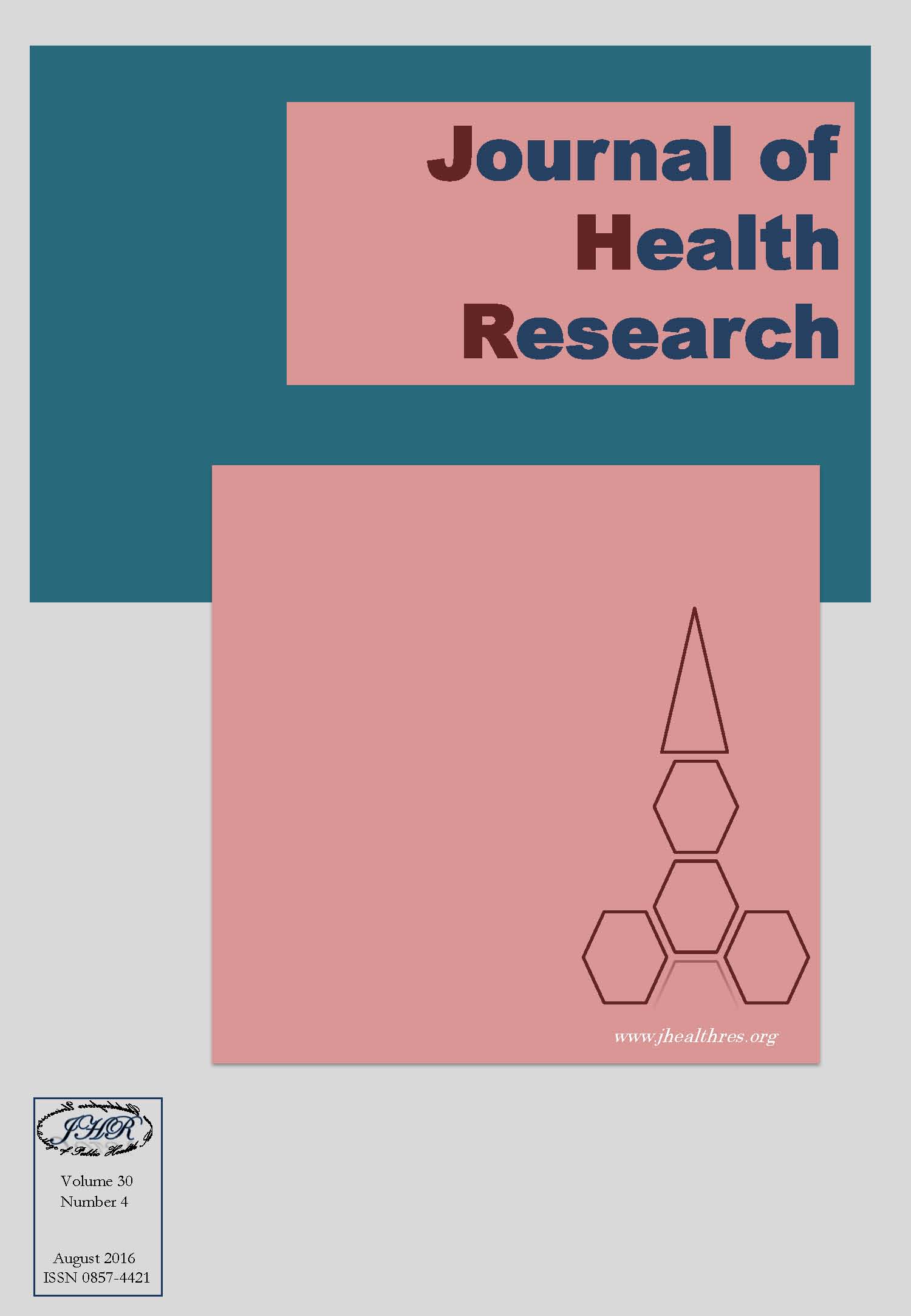Green tobacco sickness and protective behaviors among Thai traditional tobacco farmers in northern Thailand
Keywords:
Green tobacco sickness, Personal protective equipment, Thai traditional tobacco farmers, ThailandAbstract
Background: Thai traditional tobacco is mainly produced in Nan Province in the northern region of Thailand. Thai traditional tobacco (Nicotiana Tabacum L.) is a non-Virginia type. Health consequences of traditional tobacco exposure include vomiting, nausea, headache, and dizziness that result from acute nicotine poisoning caused by dermal absorption of nicotine from mature tobacco plants, which is defined as Green Tobacco Sickness (GTS). Farmers’ use of protective equipment may be important to protect them from such negative health effects.
Methods: This study aimed to characterize the association between GTS and use of personal protective equipment (PPE) among Thai traditional tobacco farmers in Nan province. A cross-sectional study was conducted with 473 Thai traditional tobacco farmers in Praputthabath sub-district and Phatow sub-district in Nan province. The farmers were randomly selected and subsequently interviewed using standardized questionnaires. Chi-square and Fisher’s exact tests were employed to examine relationships between the dependent and independent variables.
Results: GTS was statistically significantly associated with farmers’ uses of personal protective equipment (PPE) such as plastic aprons and masks and farmers’ good practice of changing wet clothes after work that the direction of association mean the farmers who wore a plastic apron or mask had risk of GTS lower than who did not use it and changing wet clothes was risk of GTS lower than in who did not change. However, GTS risk was not related to use of gloves. It is worth noting that almost all of the farmers used rubber latex gloves. This might paradoxically increase nicotine absorption due to the hot climate promoting sweating on the farmers’ hands. A number of famers always tried to use some form of self-protection to protect themselves from nicotine exposure while working, even though some of the PPE they chose may not be effective enough to protect them from GTS. For example, some farmers believed that wearing rubber latex gloves or plastic gloves would be helpful when in fact these gloves could not offer them protection from exposure to nicotine.
Conclusions: Based on the study finding of strong difference association between good practices of wearing mask, plastic apron, changing wet clothes after work and GTS, it is recommended that such practice should be promoted among Thai traditional tobacco farmers.






